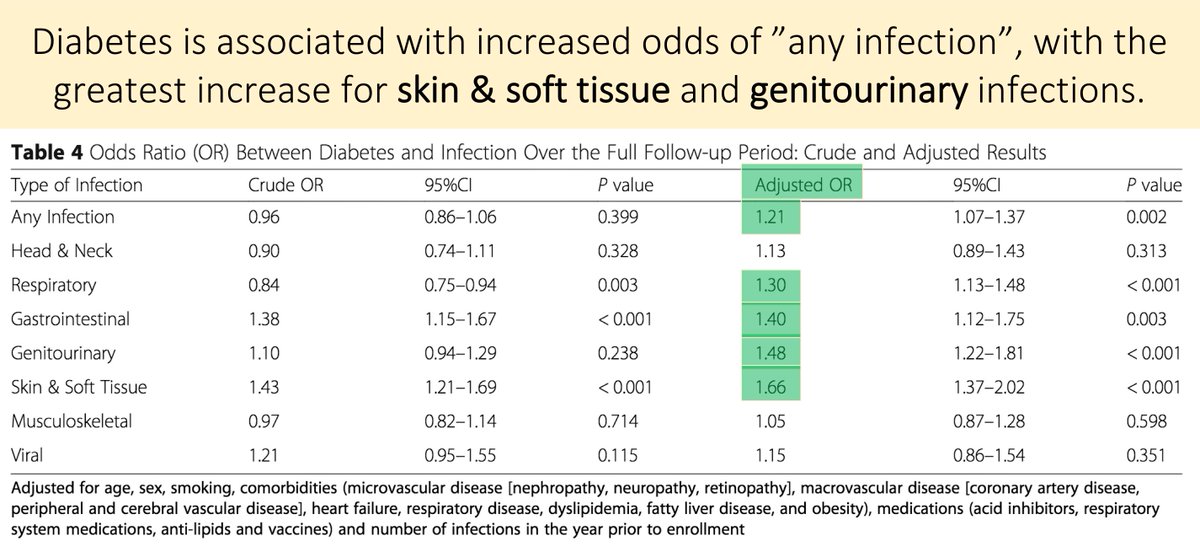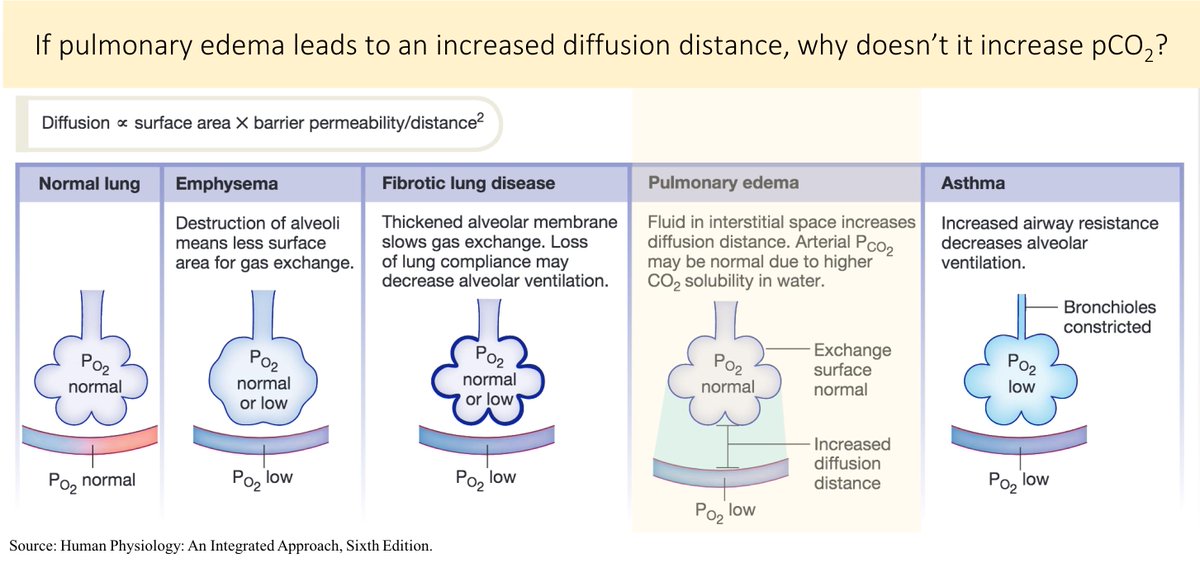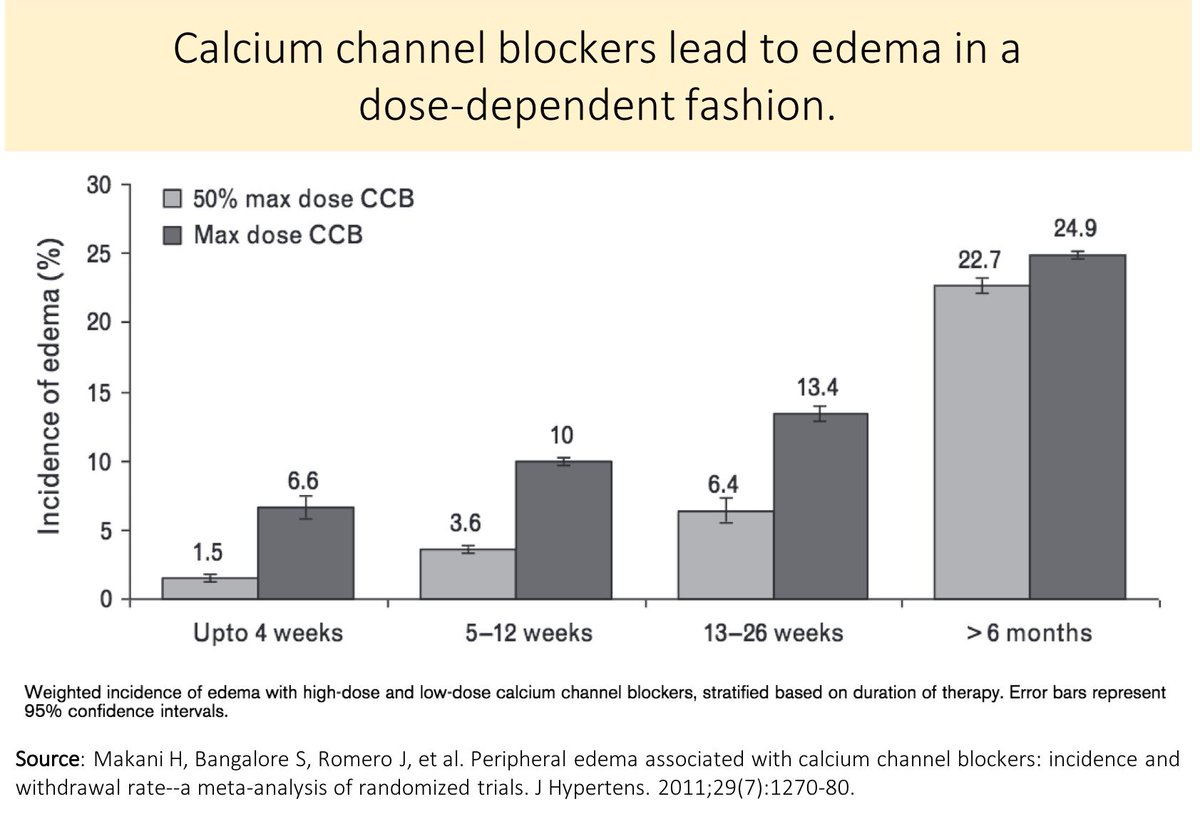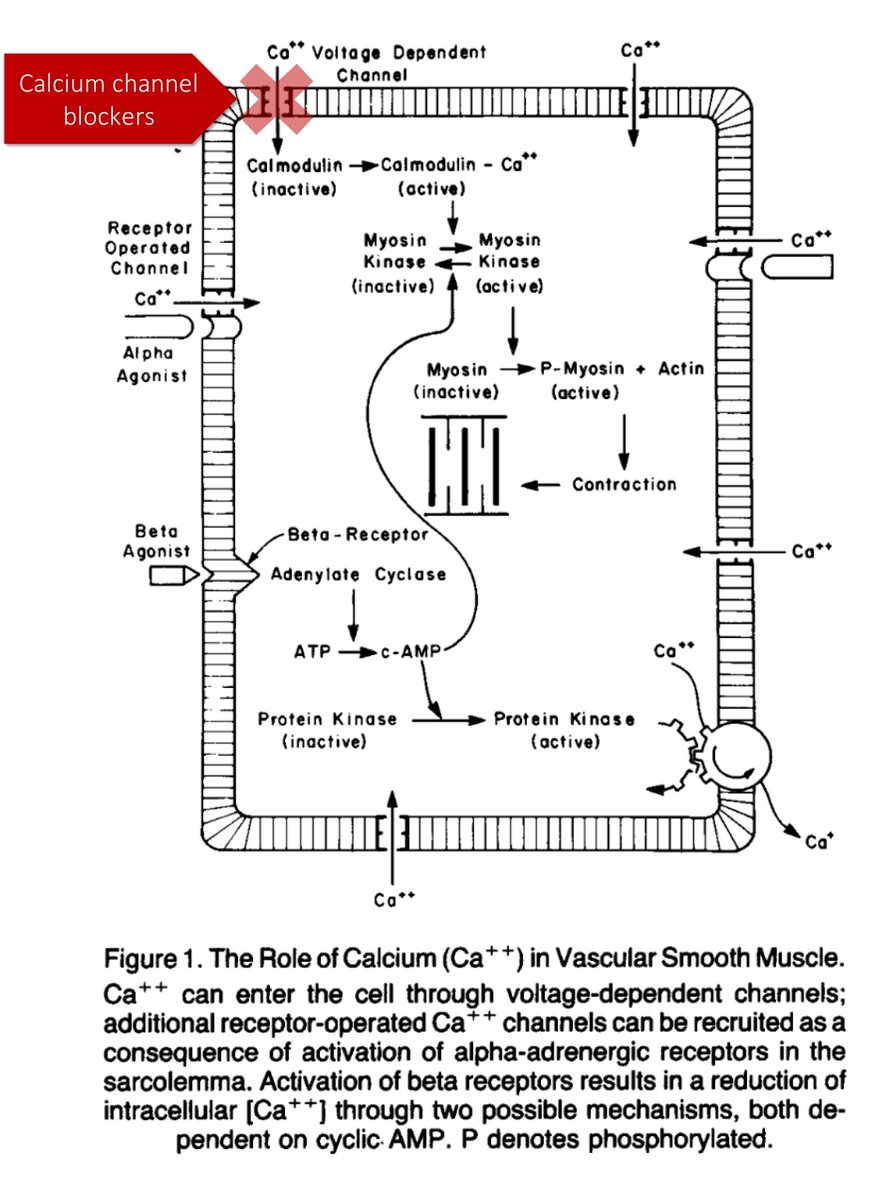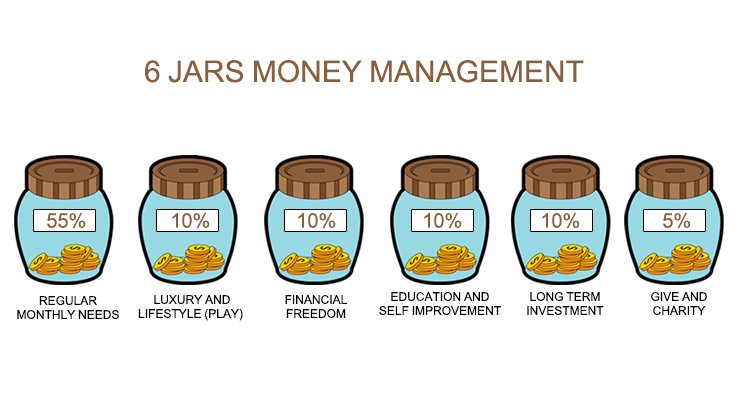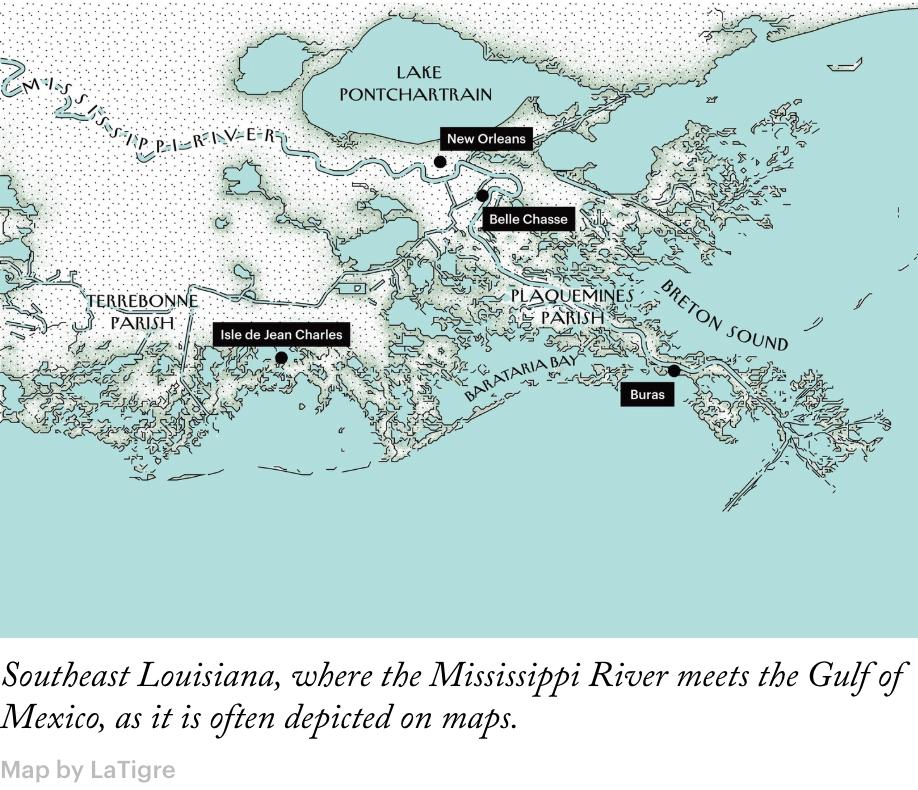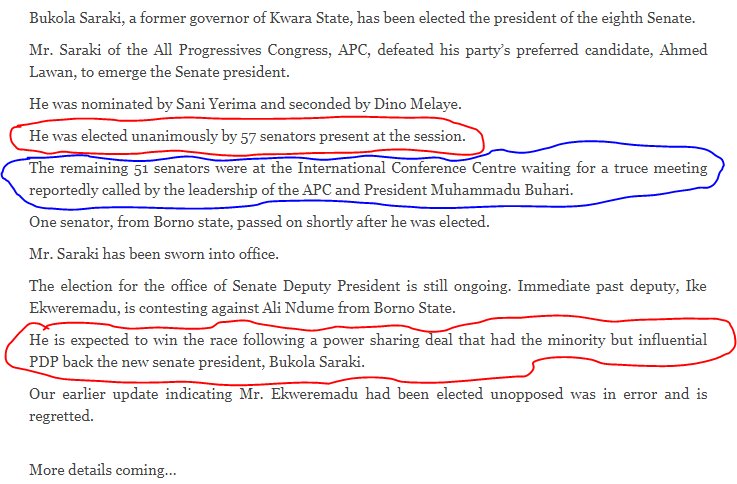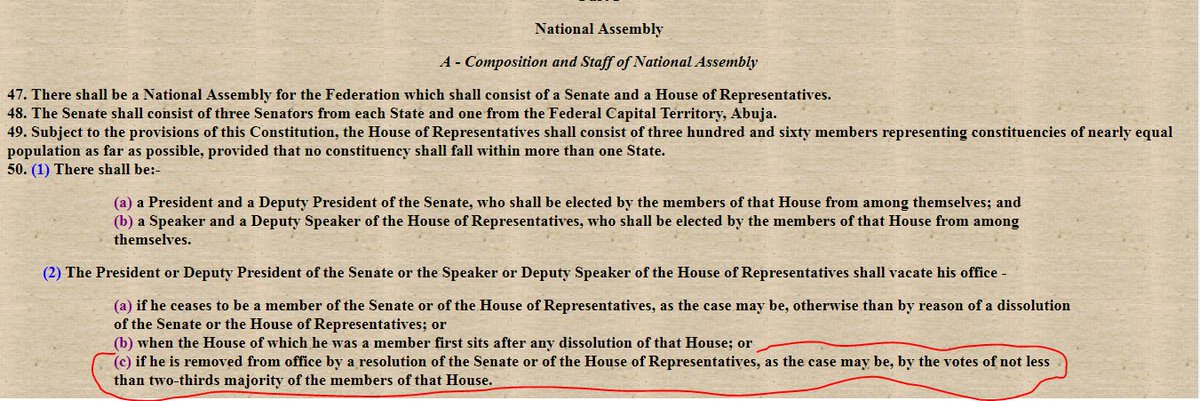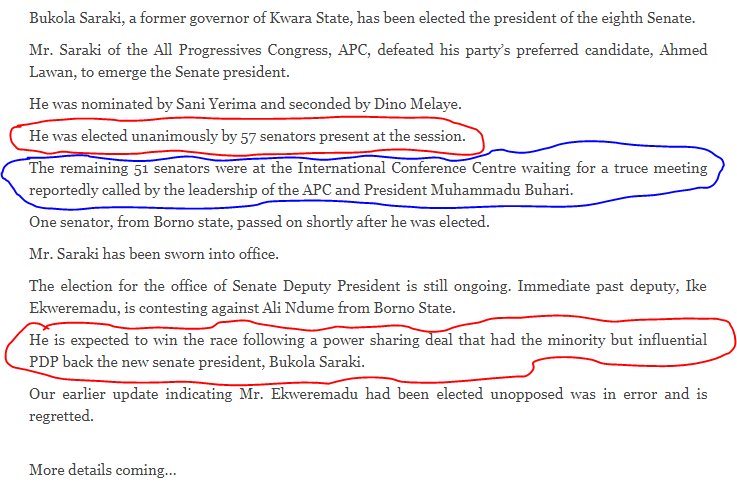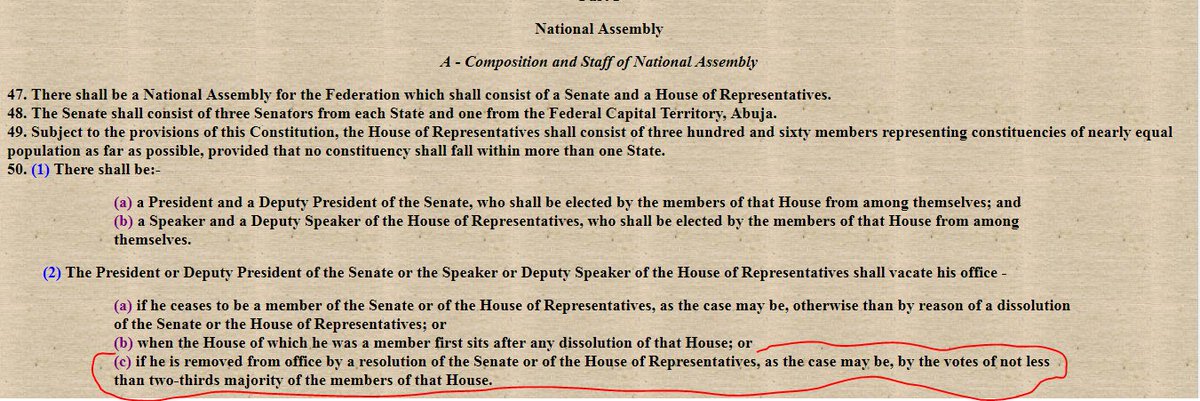Why do we need to correct hypomagnesemia in order to correct hypokalemia?
This thread is for all the interns out there, repleting, and repleting, and repleting...
Let's start with a question.
Which of the following is the main reason why hypomagnesemia makes it difficult to normalize the potassium in a hypokalemic patient?
Before getting to the answers, it’s worth establishing that low Mg does limit the ability to normalize K.
There are many reports showing that hypokalemia only improves after Mg is given. This is often the case despite aggressive administration of K.
ncbi.nlm.nih.gov/pubmed/4026498
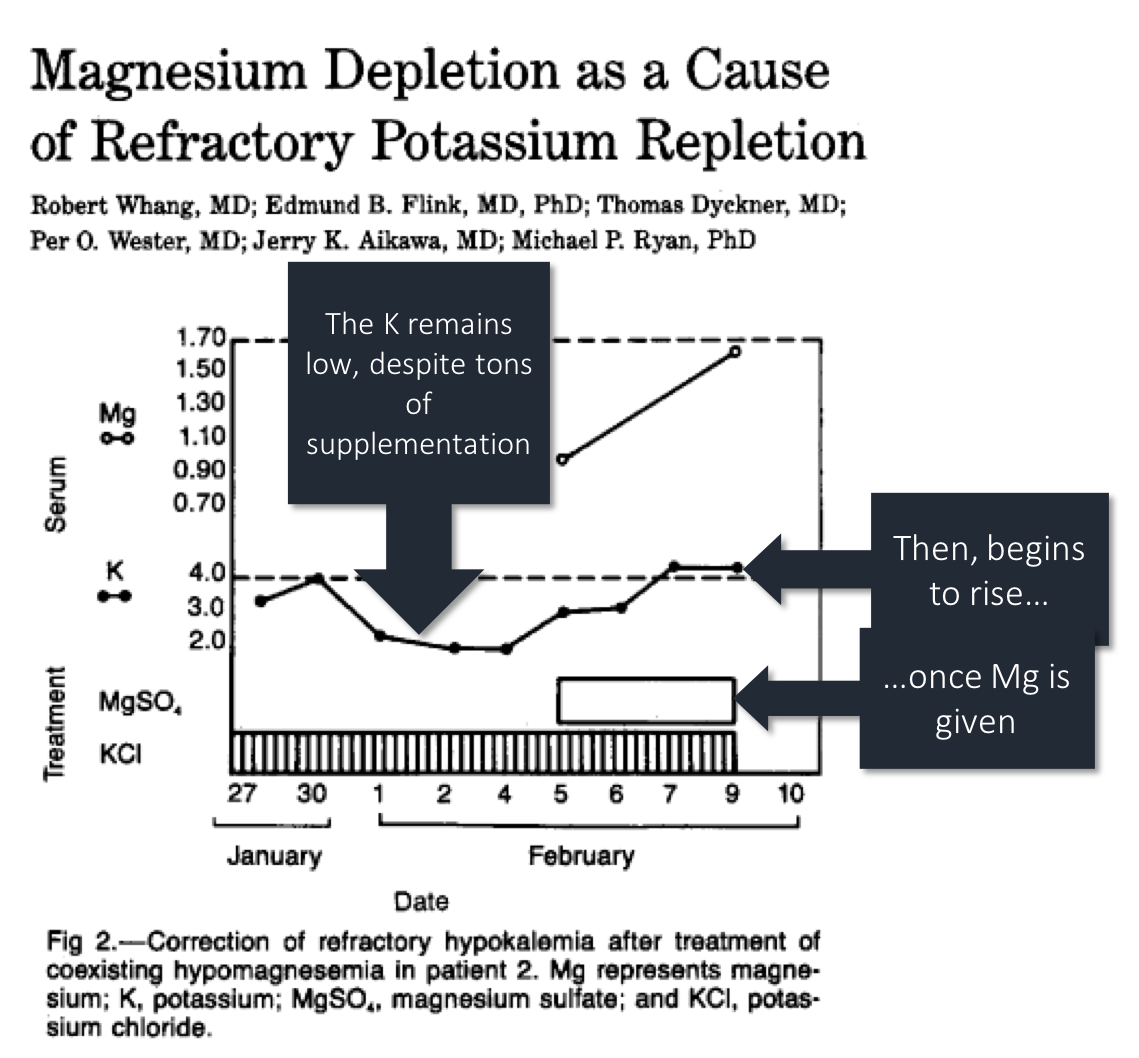
In fact, some studies suggest that you can correct thiazide-induced hypokalemia with magnesium administration alone (i.e., without concomitant potassium administration)!
ncbi.nlm.nih.gov/pubmed/10401023
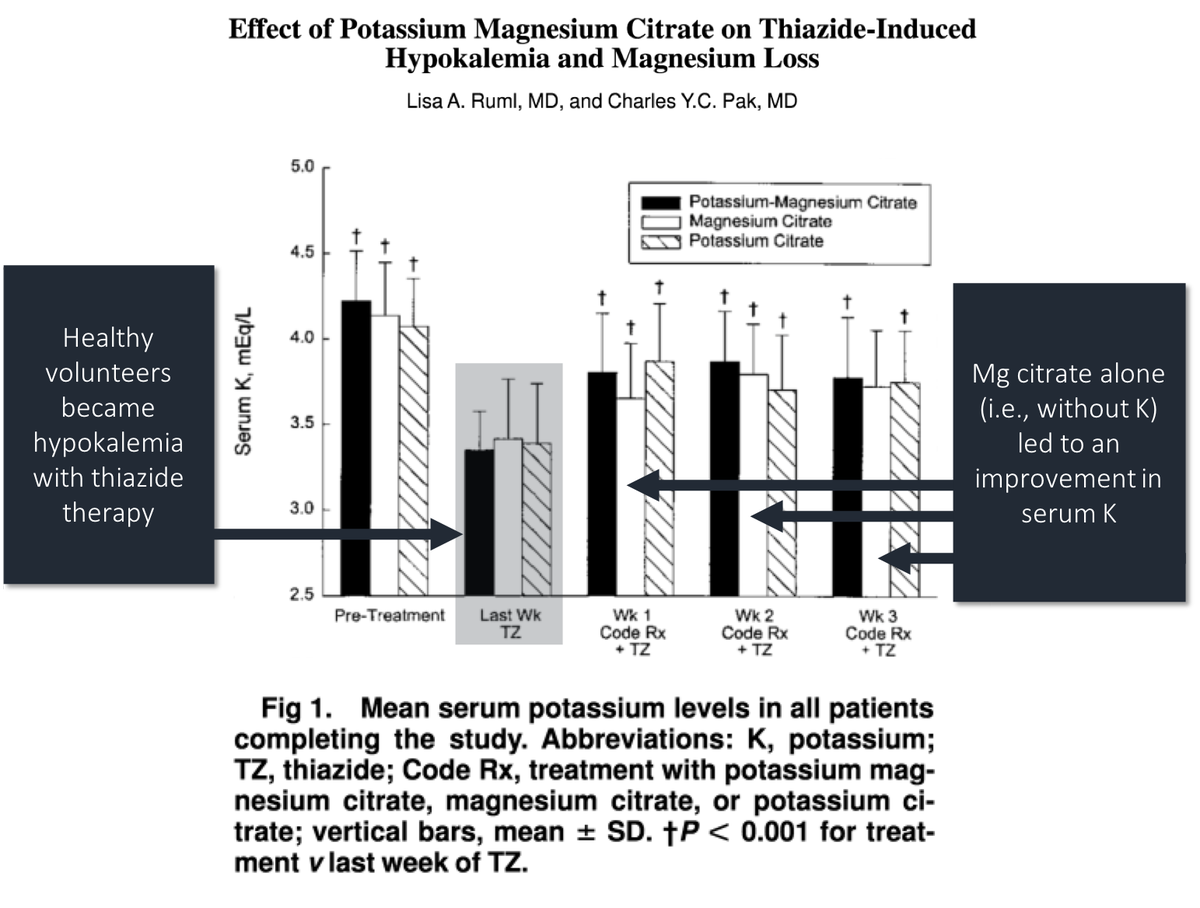
So, there is a connection between Mg and K. Specifically, hypomagnesemia makes hypokalemia difficult to correct.
Why?
We have known since the 1950s that Mg repletion leads to DECREASED renal K excretion. So, something is happening in the kidney.
ncbi.nlm.nih.gov/pubmed/13084751
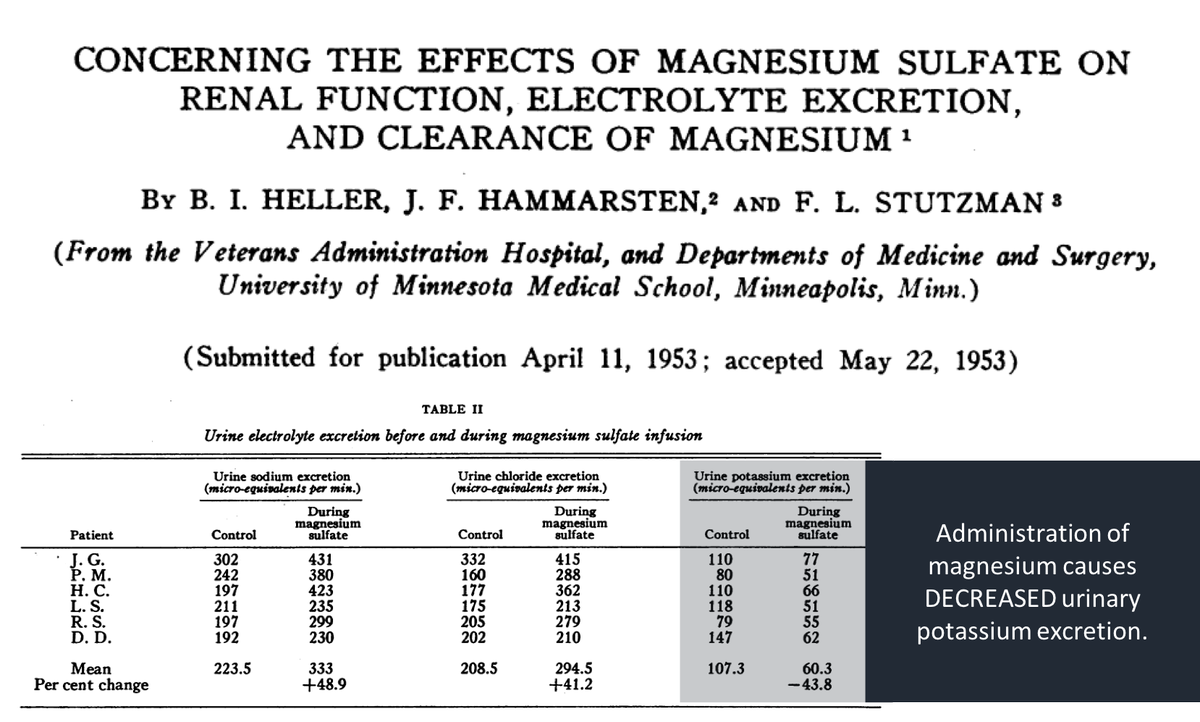
In 1957, Skou showed that magnesium is an essential co-factor for the Na/K ATPase.
Without magnesium, the ATPase doesn't work.
ncbi.nlm.nih.gov/pubmed/13412736
If the Na/K ATPase doesn't work, less potassium moves into cells. Result:
⬇️ cellular potassium
⬆️ serum potassium
I thought we were trying to explain why hypomagnesemia made correcting hypokalemia harder. If anything, the effect on ATPase seems to help serum K...
One important characteristic of the renal outer medullary potassium channel (ROMK) is that it has an INWARD rectification.
Translation: at physiologic concentrations, potassium will flow into cells. Flow into cells equates to decreased urinary potassium excretion.
And how does magnesium affect ROMK? Inward rectification is magnesium dependent!
ncbi.nlm.nih.gov/pubmed/2436236
When intracellular [Mg] is normal, it "blocks" the secretion (and therefore excretion) of K. This is inward rectification.
When [Mg] is LOW, this block is lifted and potassium is more easily secreted/excreted, even when serum [K] is low.
ncbi.nlm.nih.gov/pubmed/24855283
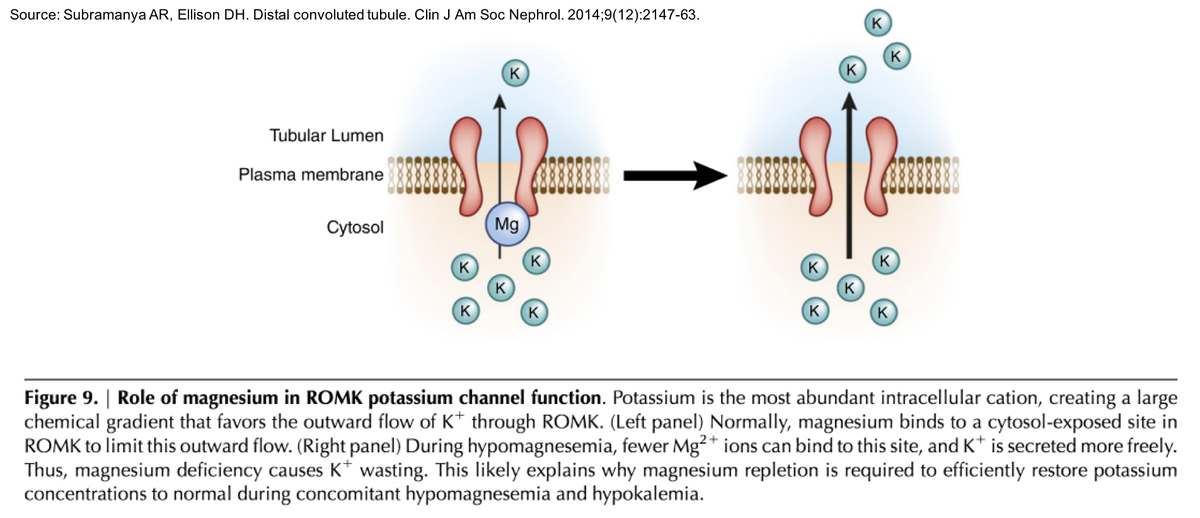
Before summarizing, let's re-ask the original question.
Which of the following is the main reason why hypomagnesemia makes it difficult to normalize the potassium in a hypokalemic patient?
Summary:
⭐️hypomagnesemia makes it more difficult to correct hypokalemia
⭐️Mg is essential for Na/K ATPase function
In the setting of low Mg:
⭐️ATPase function is low, decreasing cellular K
⭐️the inward rectification of ROMK is lost, leading to K secretion/excretion


